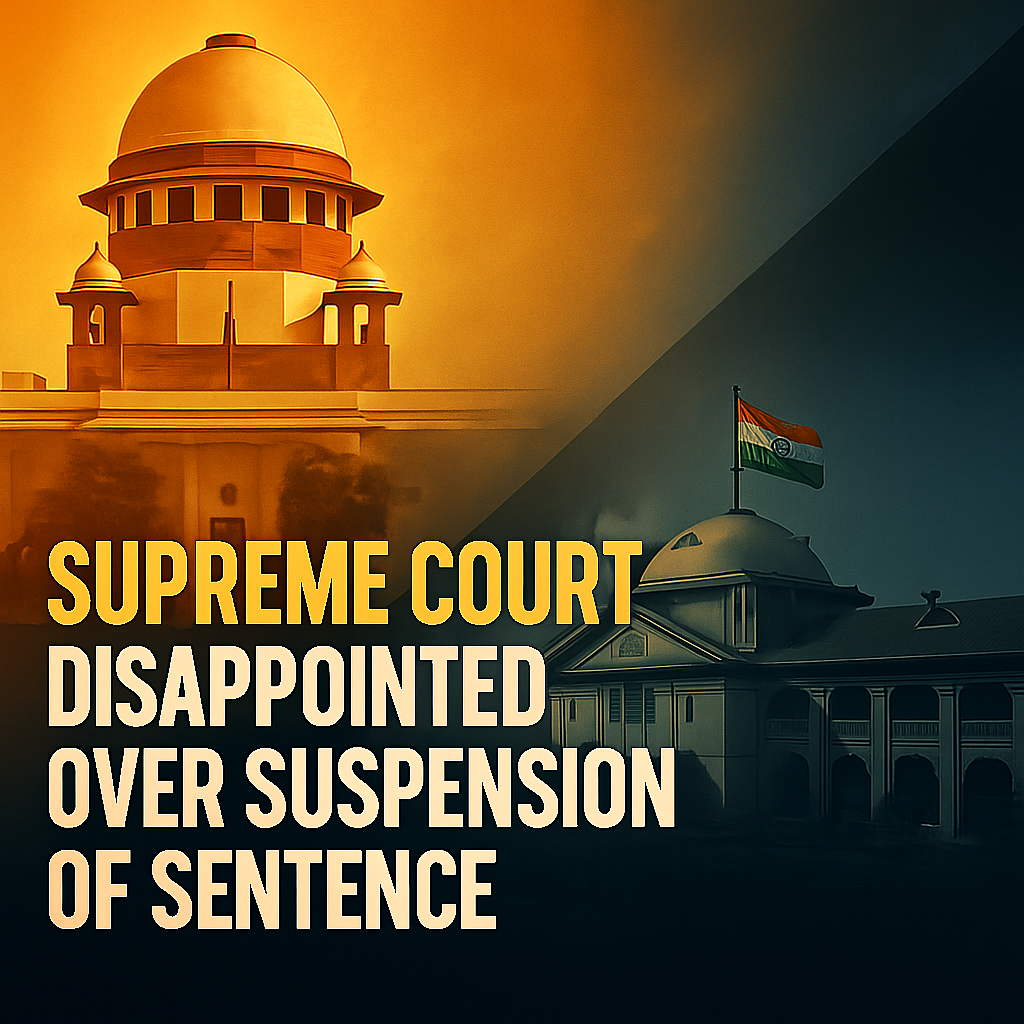Introduction
The Supreme Court expressed its disappointment over another judgment from Allahabad High Court related to the misapplication of a “suspension of sentence” which is already pleaded in fixed term conviction. Stating the landmark judgment of Bhagwan Rama Shinde Gosai v/s State of Gujarat (1999). The Apex Court stated that the appellate courts should carry liberal approach in suspension of sentence until there are strong grounds exist to refuse.
Background
· The concerned matter is: – AASIF @ PASHA VERSUS THE STATE OF U.P. & ORS.
· Aasif alias Pasha was convicted under serious charges of Protection of Children from Sexual Offences Act (POCSO), Indian Penal Code (IPC) and Scheduled Castes and Scheduled Tribes (Prevention of Atrocities) Act, was sentenced to rigorous imprisonment for 4 years with the sentences operating concurrently.
· On May 29, 2025, The Allahabad High Court rejected the convict’s application under Section 389 of The Code of Criminal Procedure (CrPC) dismissing the “suspension of sentence” on the basis that the offence was of a grave and serious nature. Without examining the plea against established legal precedent.
What Supreme Court’s take on it
· The bench of Justice J.B Pardiwala and R. Mahadevan stated that “The one more order from The High Court of Allahabad with which we are disappointed”
· The Apex Court brings the landmark judgement of Bhagwan Rama Shinde Gosai v/s State of Gujrat (1999) into light stating that “suspension of sentences” which is of fixed term ought to be allowed with a liberal approach, save in exceptional circumstances where release would adversely affect public interest.
· The Apex Court analyzes the flaws by the High Court for neglecting to examine the factual and legal precedent to resolve the question presented and should determine the merits of the plea before resorting to the relevant legal standards.
· Setting aside the High Court ruling the supreme Court remanded the matter for a fresh decision within 15 days, highlighted adherence to correct legal test and the importance of speedy resolution.
Legal significance
· Liberal Approach: – Unless there are unusual factors that could harm public interest, Appellate courts should refrain from routinely refusing “suspension of sentence”.
· Judicial Duty: – Orders should reflect a well reasoned application of settled legal principles not simply a wholesale acceptance of the prosecution’s arguments.
· Appellate Scrutiny of High Court Lapses: – The supreme Court reiterates its role in ensuring discipline. This matter follows a previous rebuke and even roster restrictions on other judges at the Allahabad High Court.
Conclusion
The Supreme Court ruling in this matter serves as a pointed reminder that the established legal principles must be strictly observed, irrespective of the gravity of the offences. The Allahabad High Court’s failure to apply binding jurisprudence and reminder issued by the Apex Court directs a clear directive for the judicial discipline.
About the Author
Tushar Kumar is a final-year BBA-LLB student at Guru Gobind Singh Indraprastha University. With a strong interest in Intellectual Property Rights, he enjoys exploring how law interacts with innovation and creativity. He’s equally passionate about legal writing, Research and believes in making complex legal ideas easier to understand through clear articles. Tushar continues to deepen his understanding of the law while contributing thoughtful pieces on contemporary legal issues.

